Clear and Present: Darrin James looks at marriage, family, and loss on “See Right Through”
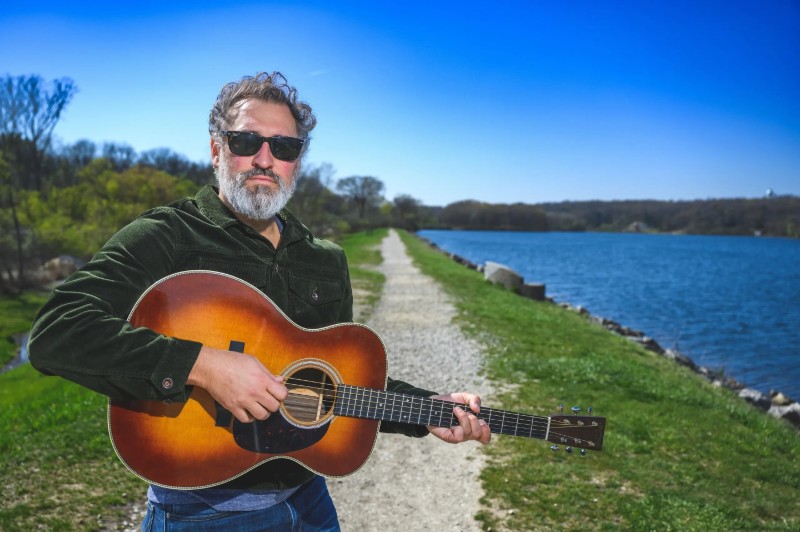
When it comes to writing about love and loss, Darrin James believes in being crystal clear.
The Ann Arbor singer-songwriter and producer shares honest and vulnerable stories about marriage, family, death, and uncertainty on his latest album, See Right Through.
“A lot of people say it’s heart-on-your-sleeve. I think that’s true and it’s always how I’ve kinda written. This album came from the more reflective side of things, and you have to embrace the vulnerability to write an honest song,” said James, who plays guitar, piano, organ, and synth on his fourth full-length release.
“Sometimes those tropes can express really true feelings … and sometimes when you’re being honest, a song is easier to write. It comes out more like a diary … and you’re staring at it thinking, ‘Now that it came out of me, that’s the song—it’s done.’”
On See Right Through, James reveals a gamut of emotions ranging from gratitude to joy to grief to hopelessness across seven tracks. Those raw feelings come to life through the album’s personal lyrics, heartfelt roots-rock instrumentation, and dreamy synth and horn textures.
“Those were personal songs that I waited until I had [them], and it made more sense after I had the love songs to counter the sad songs. I thought, ‘Now the whole album can have an arc of not just being a sad story,’” he said.
“Because [the songs] are more personal, they’re also more universal and timeless … Those themes I’m trying to deal with are ones that everyone [experiences].”
Encore Theatre's take on Stephen Sondheim’s fairy-tale mashup "Into the Woods" is filled with powerhouse vocals
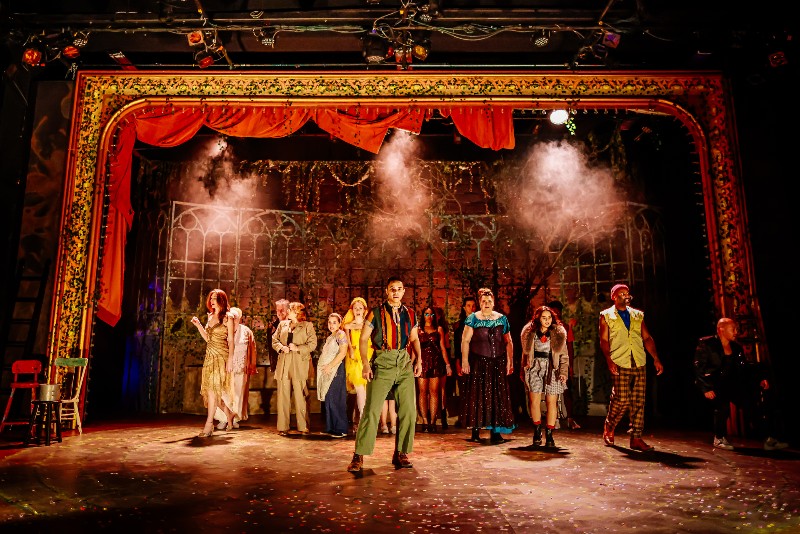
It’s fitting that I watched Encore Musical Theatre Company’s new production of Into the Woods with my 12-year-old daughter.
Not just because the girl can sing every word of the show’s patter song (“Your Fault”)—she used to fall asleep listening to the show’s cast recording each night—but also because she now lives in that interstitial, fog-laden forest known as middle school, where preteens blindly fumble their way out of childhood.
And frankly, if I had to name one show that’s about the terrifyingly fraught and difficult process of growing up, it would be Stephen Sondheim’s Into the Woods.
A fairy-tale mashup that premiered on Broadway in 1987—long before the word “mashup” became such a regular part of our lexicon—Woods interweaves the stories of Cinderella (Ash Moran), Rapunzel (Lucia Flowers), Little Red Riding Hood (Sienna Berkseth), and Jack (Tsumari Patterson) and the Beanstalk.
How? By way of a cursed baker (Marcus Jordan) and his wife (Jessica Grové), who can’t have children until they gather the four items requested by the old witch next door (Jennifer Horne). But even when the couple succeeds, and everyone—fairy-tale protagonists included—gets what they want, in its darker second act Woods dares to venture beyond “happily ever after” and ask, “OK, now what?”
Monday Mix: WCBN's Local Music Show, Benjamin Miller, Immaculate Conception, The Boy Detective, Indie Pop Takeout, Sound and Silence

The Monday Mix is an occasional roundup of mixes, compilations, podcasts, videocasts, and more by Washtenaw County-associated artists, DJs, radio stations, and record labels.
For this edition, we have studio gigs from WCBN's Local Music Show, an interview with Benjamin Miller, mixes from Immaculate Conception, an interview with The Boy Detective, and new episodes of Indie Pop Takeout and Sound and Silence.
All the Time: Frontier Ruckus Explores the past, present, and future on new album

For Frontier Ruckus, aging represents a mixture of nostalgia, fear, and hope.
The Detroit-Ypsilanti folk-rock trio of Matthew Milia, David Jones, and Zachary Nichols explores those feelings alongside the passage of time on its new album, On the Northline.
“The main soundbite that Matt has been saying about the record is that half of the songs were written before he met his wife, Lauren,” said Nichols, who plays trumpet, musical saw, melodica, and air organ on the album.
“He said half of the songs are angsty and half of them are happy. I hear a lot in the lyrics about getting older, looking back, and thinking about the future. I think we all feel a little bit middle-aged now.”
As part of that reflection, Frontier Ruckus engages in deep soul-searching across On the Northline’s dozen tracks. Contemplative lyrics, vivid suburban imagery, and wistful Americana, country, and jazz-inspired instrumentation encourage listeners to ponder their life trajectories.
“The feelings and the ruminations on aging and getting to the point that we’re at in our lives … they’re probably a little conflicted because it’s conflicting for all of us,” said Jones, the band’s banjoist-vocalist. “To a certain extent in Matt’s songs, there’s always a lot of nostalgia in a way that’s positive, but sad as well.”
Despite those conflicting thoughts, Frontier Ruckus forges ahead and finds some solace while revisiting hometown landmarks, adapting to everyday surroundings, and welcoming unexpected changes.
“There’s a certain amount of happiness to be where we are now and be past the turbulent days of our youth when we were in the van all the time,” Jones said. “There’s a level of contentment with being in this place that we’ve all settled in that feels good and more comfortable.”
I recently spoke with Jones and Nichols about waiting seven years between releases, dissecting the album’s introspective themes and tracks, writing and recording the album, preparing for two celebratory shows, and going back out on the road.
Friday Five: Evan Haywood, Flwr.Chld and Kapsoul, Cece June, Far Leys, Dr. Pete Larson
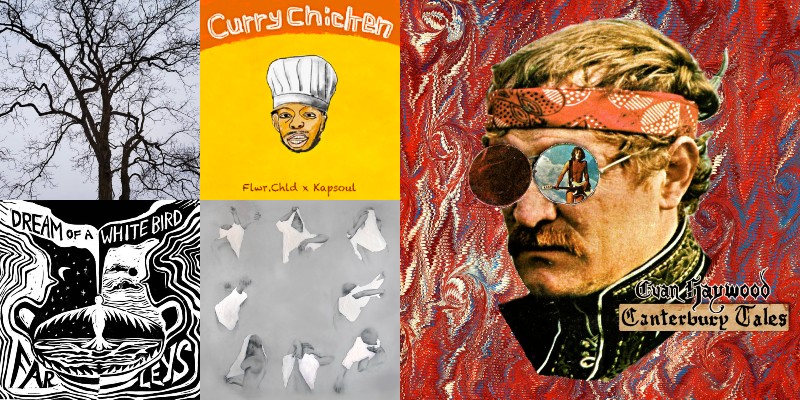
Friday Five highlights music by Washtenaw County-associated artists and labels.
This week features psychedelic folk by Evan Haywood, hip-hop by Flwr.Chld and Kapsoul, indie-folk by Cece June and Far Leys, and minimalist techno by Dr. Pete Larson.
U-M Writer-in-Residence Caroline Harper New's poetry book “A History of Half-Birds" unfolds time and explores human-animal interplay
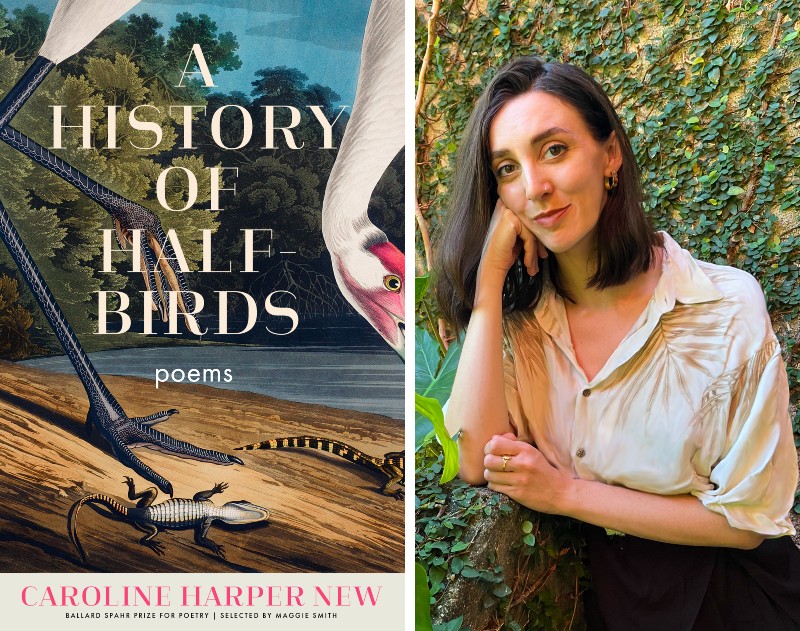
“Control is a delicate science,” writes Caroline Harper New in her poetry collection, A History of Half-Birds. This book won the 2023 Ballard Spahr Prize for Poetry as selected by Maggie Smith.
New is a Writer-in-Residence at the University of Michigan and a U-M alumna with an MFA in Writing. She will read and be in conversation with poets Abigail McFee and Maia Elsner on Thursday, February 15, at 6:30 p.m. at Literati Bookstore.
A History of Half-Birds examines destruction from both natural events and human actions. The consequence is that a person’s life—or an animal’s life—is no longer the same. Since “We study the past to know the future,” there is no forward movement in these poems without probing what happened previously, whether that is Amelia Earhart’s disappearance or a reimagined Wizard of Oz in which Dorothy repeats “there’s no place like home anymore” amidst alligators.
This poetic investigation finds that pain and love are intertwined during these trials. A songbird that appears dead awaits its burial, but when the poet is ready to place it in a newly dug grave, the bird has vanished. This different type of loss brings new emotions. The poet implores that “I need you / to know I would have kept you, and loved you / most, had you never escaped my hands.” The past, present, and future are tinged with wondering what could have been if details had been altered.
The Gulf Coast storms raging throughout this collection are out of control, but they do not only consist of fury because “our lemon trees bloomed most brilliantly post-hurricane.” Specks of light also emerge. All people can do is name what they see, as the poem “Garden of Eve” suggests:
Weatherproof: Annie and Rod Capps Celebrate Life’s Highs and Lows on “Love and Rain” Album

Annie and Rod Capps weather life’s sunny and stormy moments together on Love and Rain.
Those moments also serve as lighthearted and serious reminders about gratitude on the married duo’s latest album.
“There’s an overarching theme of love and rain being that contrast and balance of life,” said Annie Capps, the duo’s vocalist-guitarist, who’s based in Chelsea with her husband Rod Capps. “It’s about not taking the rough stuff too seriously, yet it’s also about being grateful for the good stuff and not taking things for granted.”
The Capps demonstrate that mindset personally and professionally on Love and Rain, which features 10 tracks filled with perceptive lyrics, vibrant Americana instrumentation, and rich harmonies.
“Annie is fortunate because she has an outlet to write songs about these things,” said Rod Capps, the duo’s guitarist-violinist-violist, who will celebrate 30 years of marriage to Annie Capps in June. “My role in the songwriting is to color around the edges. Annie builds these structures, and I help flesh them in and put filigree in.”
I recently spoke to the Capps about celebrating their anniversary, working with their bandmates, exploring different themes on the album, writing and recording tracks for Love and Rain, preparing for their annual Valentine’s Day show at The Ark, and planning for other performances and projects.
Friday Five: variant, Cedar Bend, Towner, Great Arm, Artdogg
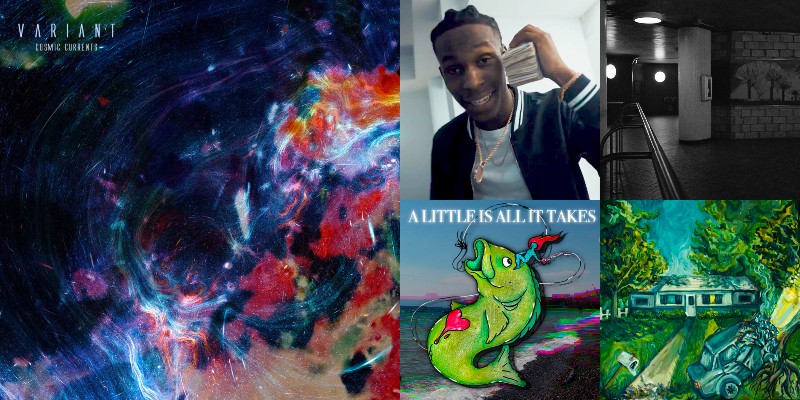
Friday Five highlights music by Washtenaw County-associated artists and labels.
This week features space music by variant, indie rock by Cedar Bend and Towner, neo-grunge by Great Arm, and hip-hop by Artdogg.
Insulation Versus Isolation: U-M's production of “Arbor Falls” holds a mirror to society's divisions

Caridad Svich’s play Arbor Falls is set in a small, landlocked, tree-lined town of that name. We know little about the town, save that it is near another place where something terrible happened, and the people of Arbor Falls want to feel safe. We know, too, that it is home to a church with a dwindling congregation and a preacher unsure of his faith.
In one scene, the preacher says they don’t think about what to say in their sermon but what to leave out. In this play, much is left out, too. Only one character is named other than by title (Preacher, Lover, Owner), and none have specific genders; pronouns are gender neutral. The dialogue—short lyrical lines, lacking in detail—also leaves a lot for the actors and director to imagine.
Into Arbor Falls comes a stranger, a traveler nobody knows, who makes “odd” sounds when praying. Preacher offers them safe harbor and food. But who is this stranger? Can they be accepted here?
“I’ve been really excited about the way the cast and production team have embraced the project,” says Tiffany Trent, chair of the University of Michigan’s Department of Theatre and Drama and director of Arbor Falls, which makes Michigan premiere on February 15 at Lydia Mendelssohn Theatre.
For Trent, a major theme is insulation versus isolation.
U-M anthropologist Ruth Behar sails “Across So Many Seas” through the stories of four 12-year-old girls

Spanning hundreds of years and four countries, Ruth Behar’s new middle grade novel, Across So Many Seas, features four 12-year-old girls, each facing their own momentous challenge.
Behar, a University of Michigan professor, will be in conversation with fellow professor Devi Mays at Literati Bookstore on Tuesday, February 13, at 6:30 pm.
The common theme among the girls’ challenges is exile. They are part of the same Jewish family, and different generations of their relatives find themselves traveling across different oceans to a new home. Benvenida journeys with her family from Spain to Naples and then Turkey in 1492 owing to the Spanish Inquisition. Reina is abruptly forced out of Turkey to forge a new life on her own in Cuba in 1923. Alegra escapes Fidel Castro’s regime with her family and relocates to the United States in 1961. Lastly, Paloma has the chance to learn about her history on a trip to Spain from her home in Miami in 2003. In fact, Paloma is the daughter of Alegra and granddaughter of Reina.
Each move causes pain for the characters, and each new country marks a new chapter in the long history of the family. As Benvenida takes a ship from Spain to Naples, she reflects:


































